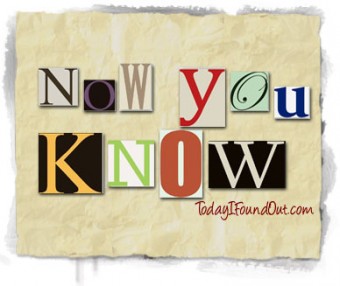The Difference Between Farther and Further
 You should know the difference between “farther” and “further”.
You should know the difference between “farther” and “further”.
Many people use “further” and “farther” interchangeable, but, in fact, they mean slightly different things. “Farther” refers to a physical distance, while “further” refers to a figurative distance. So, when wondering how many more miles or kilometers to a particular destination, you’d say, “How much farther to the gas station?” On the other hand, when speaking of a figurative measure, you should use “further”. For instance, “Nothing could be further from the truth.”
Probably the best way to remember the distinction between “farther” and “further” is to think about where you’d use the word “furthermore”. In this case, you use it much like “in addition to”, which is tied to something figurative. So just remember “farther” = “physical” and “further” = “figurative”.
If you like this post, you might also like:
| Share the Knowledge! |
|





This only applies to American English. in British English Further is used in every context.
@alex: Technically correctly or just used commonly?
30+ years english native…First encounter of ‘farther’ was watching Disney’s Moana. I’ve never been corrected when using ‘further’. In any case farther sounds far to similar to ‘father’ and would cause confusion.
You’re right, alex. That only applies to American English. “Farther” is unused in the UK.
“interchangablY”… As far as I am aware, American English also uses adverbs 🙂 BTW, Canadian English uses both for all contexts as well, especially in the east. The west was settled by a different kind of folk.
You beat me to it. Good catch!!!
<Mnemonically I prefer to think as "Farther" contains the word "Far" with contains the concept of distance. "Further contains the word "fur" with has absolutely nothing to do with "Further" real meaning.
We use farther here in Britain. It’s used in the same way (with the same inconsistency) as elsewhere in the world.
Possibly interestingly, the farther/further usage is also found in less/fewer. Most people use less when, if the amount is countable, it should be fewer.
It’s very rare in Britain, compared to the use of further.
this is wrong
“farther” refers to a figurative distance
not further
Nope…sorry…YOU are the wrong one.
How about when referring to time? Time is theoretical, so I would say, “On this schedule, this task is furthest behind.” Correct?
The Oxford Dictionary simply lists both as “variants”.
To me, “Farther” invokes an idea of physical “distance” whereas “Further” invokes an idea of “additional information”. However, I am neither a linguist, nor a native english speaker – ( I am Indian) ; and I hate arguments.
I just want to know what to inform students in my blog. Please help – if possible – with authority.
Professor Raghu Rao
You can tell students to use “farther” in American English otherwise, just use “further”.
To clean up this vague distinction we should perhaps use “further” only in the sense of an extension to something already defined as an objective. Then “farther” would always mean, “at or to a greater distance or extent compared to another distinct place or objective.” For example, Newton should have used “farther than others” if he was speaking of his discovery of universal gravitation but “further than others” if he meant that he had improved upon the concept of a solar system. To make up a “distinction for dummies” we could go so far as to forbid the use of “further” as an adverb, restricting its use to verbs and, only in the case of extensions, adjectives.
I just wonder about the opening sentence in this article using the word INTERCHANGEABLE.
Many people use “further” and “farther” INTERCHANGEABLE, but, in fact, they mean slightly different things.
I think INTERCHANGEABLE should be an adverb in this case: INTERCHANGEABLY?
Many people use “further” and “farther” INTERCHANGEABLY, but, in fact, they mean slightly different things.
What do you think?
tauruswarrior – I agree. Interchangeably is correct. The ably or ly indicates how or the degree to which something should be done. Way too often today, you hear, drive safe. It should be drive safely. Drive me craz y. Another one I dislike is more important and more importantly.
Yes I have to agree with some of the others. Americans use farther when other English speakers use further more often but farther has the same meaning in British and Australian English. The idea that farther refers to physical distance and further to figurative meaning is queer and quirky. The usage by Americans of Webster dictionary pronunciation, you know, pronouncing multi syllabic words with equal stress just makes you all sound like Proles and morons, but that is your choice folks.
The further you are from an object the harder it is to make out details
The farther you are from an object the harder it is to make out details
To a 69 year old “Brit” the first statement “sounds” more natural
I knew the difference but not that “farther” is not used in the UK I learned something new, woot!
Sorry George, as a 73-year-old Englishman, it’s the second for me [playing the age card ;0) ]
Michael Roberts, lets learn English leave the age card business alone.